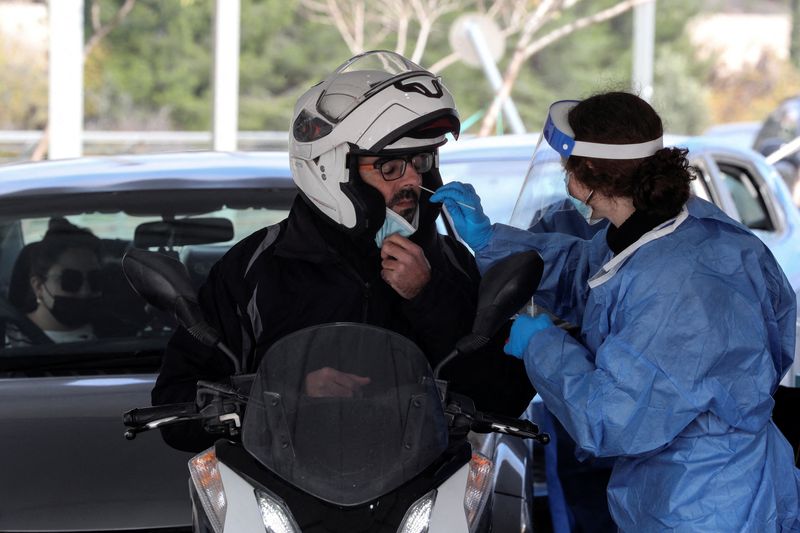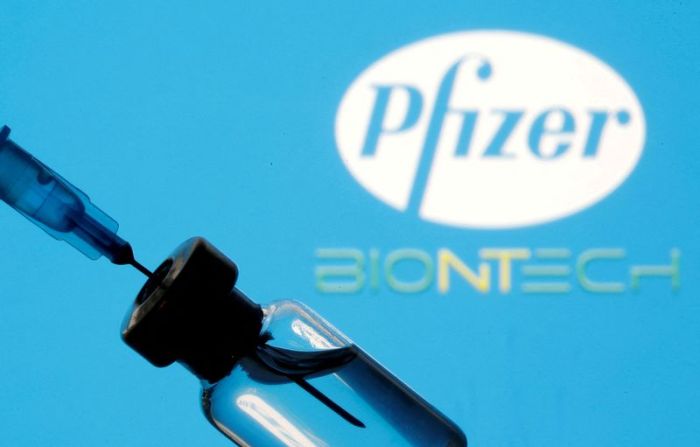JERUSALEM (Reuters) -Israel changed its COVID-19 quarantine and testing policy on Wednesday as part of efforts to husband resources and ensure continued protection for vulnerable people amid a surge in infections fueled by the Omicron variant.
PCR tests will be earmarked for people aged 60 and over or with weak immune systems, while those at lower risk will be checked with rapid antigen tests, the health ministry said.
People who are not in riskier groups and have been vaccinated against COVID-19 will be allowed to use home-kits to initially determine whether they need to self-isolate after exposure to carriers of the virus.
“This is a significant change intended to identify risk populations sooner, intervene and prevent severe disease. We are now looking even less at infection (rates),” ministry director-general Nachman Ash said at a news conference.
Israel hopes its stocks of Pfizer Inc and Merck & Co Inc’s antiviral COVID-19 medications will help keep hospital admissions and severe cases down, even as daily cases are expected to rise to record highs in the coming weeks.
The new policy comes into effect on Friday, Jan. 7.
KEEPING ECONOMY OPEN
Until now, those exposed to confirmed COVID-19 carriers have been required to take official tests. If found to be positive, they must submit to police-enforced quarantine rules.
The regulations announced on Wednesday mean that vaccinated people are entrusted to home-test and report the result accurately. With fewer PCRs being processed, at-risk groups will get their results sooner.
“In the next few days we will get used to testing ourselves … which will allow us to keep the economy open,” Health Minister Nitzan Horowitz said.
Those who pass the home-test are free from isolation. Those who get a positive reading are required to undergo a second, confirmatory test at a clinic.
Israel has confirmed around 1.4 million infections since the start of the pandemic and more than 8,000 deaths.
About 60% of its 9.4 million population is fully vaccinated, according to the Health Ministry. It began administering a fourth dose of vaccinations to risk groups this week.
(Reporting by Maayan Lubell and Dan Williams; Editing by Angus MacSwan and Gareth Jones)

























